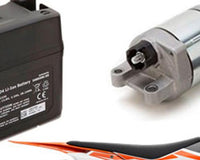You’re at the airport, already running on iced coffee and optimism. Bags are packed, passport’s in hand… then security pulls your carry-on aside and starts unpacking your life like it’s a yard sale.
And the “problem item”? Not liquids. Not scissors. Not your suspiciously heavy bag of snacks.
It’s your batteries.
Here’s the uncomfortable truth: packing batteries safely for your trip isn’t just about avoiding confiscation — it’s about preventing short-circuits, overheating, and in rare cases, fires. Aviation authorities (and airlines) take lithium batteries seriously for a reason.
But don’t stress. Once you know the rules and the few sneaky mistakes most travellers make, you’ll pack like a pro — calm, organised, and not that person holding up the line.
Why Airlines Care So Much About Batteries (It’s Not Just Red Tape)
Batteries store energy. When that energy escapes the wrong way—through damage, heat, or terminals touching metal—you can get:
-
Short-circuits (battery terminals touching keys/coins/cables)
-
Overheating (especially lithium batteries)
-
Smoke or fire incidents (rare, but serious)
That’s why authorities recommend (and often require) spare/uninstalled lithium batteries to be carried in the cabin where crew can respond quickly.
Bottom line: This is safety stuff, not “because they felt like it.”

The Golden Rule — Carry-On vs Checked Luggage
Spare batteries (uninstalled) = Carry-on
This includes:
-
Power banks / portable chargers
-
Spare phone/laptop/camera/drone batteries
-
Loose rechargeable lithium batteries
Authorities like the FAA and TSA explicitly say spare lithium batteries and power banks should not go in checked baggage.
Australia’s CASA also advises keeping spare lithium batteries with you in the cabin and protecting them from damage.
Batteries installed in devices = usually OK (but carry-on is smarter)
Devices like laptops, cameras, toothbrushes, shavers are commonly allowed — but if it’s valuable or fragile, carry-on is the go.
Aussie tip: If you’d be devo if it got lost or smashed, don’t check it.
Know What You’re Carrying (Battery Types That Matter)
Lithium-ion (rechargeable)
Common in:
-
phones, laptops, tablets
-
cameras, drones
-
power banks
These are the batteries behind most lithium battery airline rules and carry-on battery restrictions.
Lithium metal (non-rechargeable)
Found in some specialty/disposable batteries. Often limited by lithium content per battery.
Alkaline (AA/AAA/9V disposables)
Lower risk than lithium, but still pack them properly — they can leak and wreck your gear.
NiMH rechargeables (AA/AAA rechargeables)
Generally fine, but treat them like spares: protect terminals and pack neatly.
Power Bank Carry-On Rules (and the Watt-Hour Trap)
Power banks are basically spare lithium batteries, so the rules apply the same way: carry-on only in most cases.
The common watt-hour thresholds you need to know
Across major guidance, you’ll usually see:
-
0–100 Wh: generally allowed in carry-on
-
101–160 Wh: often allowed with airline approval, usually limited quantity
-
Over 160 Wh: generally not permitted for passengers
How to calculate watt-hours (Wh) in 10 seconds
If the label doesn’t show Wh, use the standard formula:
Wh = Volts (V) × Amp-hours (Ah)
If you only have mAh: Wh = V × (mAh ÷ 1000)
Example:
A 20,000 mAh power bank at 3.7V → 3.7 × (20000/1000) = 74 Wh (usually all good).
Travel-smart move: Stick to power banks under 100 Wh unless you truly need bigger.
The Step-by-Step System for Packing Batteries Safely for Your Trip
Here’s the part that saves you from the “bag search of shame.”
1) Protect every spare battery terminal (non-negotiable)
A short-circuit is most likely when terminals touch metal.
Do this:
-
Keep batteries in original packaging, or
-
Use a battery case, or
-
Tape over terminals with non-conductive tape, or
-
Put each battery in a separate pouch/bag
TSA and other authorities emphasise preventing terminal contact/short-circuits for spare batteries.
Rule of thumb: If it’s loose, it’s a risk.
2) Keep spares separate from “junk pockets”
That little pocket with coins, keys, adapters and random cable bits? That’s a battery nightmare.
Never chuck spare batteries in there. Ever.
3) Store spares in carry-on where they’re easy to inspect
If security can’t quickly see what’s going on, they’ll unpack more.
Pro tip: One clear pouch for “all batteries + chargers” = faster screening.
4) Don’t travel with damaged, swollen, or recalled batteries
If it’s swollen or hot or looks dodgy — bin it responsibly.
CASA specifically advises stopping use/charging if batteries show damage/overheating/swelling.
5) Be careful with camera and drone batteries
These are common troublemakers at airports because they’re often loose and high-capacity.
Best practice:
-
Hard case per battery
-
No terminal exposure
-
Keep them in carry-on
-
If asked, you can explain the Wh rating calmly (like a legend)
6) Gate-checking? Remove spares and power banks first
Sometimes your carry-on gets gate-checked at the last minute.
If that happens: take out power banks and spare lithium batteries and keep them with you. (Many guidelines are clear about spares being carried in the cabin, not checked.)
Quick “Airport-Proof” Checklist (Featured Snippet Friendly)
Packing Batteries Safely for Your Trip — Checklist
-
✅ Put spare lithium batteries and power banks in carry-on
-
✅ Use battery cases or original packaging
-
✅ Tape terminals / prevent metal contact
-
✅ Keep spares away from coins/keys/cables
-
✅ Check Wh rating on power banks and large batteries
-
✅ Don’t bring swollen/damaged batteries
-
✅ Keep everything neat and visible for security
Print it in your brain. You’re set.
Common Stuff-Ups (So You Can Avoid Them)
Mistake #1 — Spare batteries in checked luggage
This is the classic. It’s also the fastest way to get items confiscated or delayed.
Mistake #2 — Loose batteries rolling around
Even AA/AAA can short if terminals touch metal. And alkaline leaks can destroy devices.
Mistake #3 — “Mystery capacity” power banks
If the Wh rating is unclear, you risk delays. IATA notes lithium-ion batteries should have Wh marked (and if not, you may need to calculate).
Mistake #4 — Bringing cheap, dodgy batteries
If it feels like a bargain-bin special, it might also be a risk. CASA recommends choosing reputable suppliers.
FAQ Can I pack spare batteries in checked luggage?
Usually no for spare lithium batteries (including power banks). They typically must be in carry-on with terminals protected.
Are power banks allowed on flights?
Generally yes in carry-on, subject to watt-hour limits (commonly up to 100Wh without approval; 101–160Wh may require airline approval).
How do I pack loose batteries safely?
Use a battery case, original packaging, or tape terminals so they can’t touch metal and short-circuit.
Do airline rules vary?
Yep — country and airline policies can differ. Use the rules above as the safe baseline, then check your airline’s dangerous goods page if you’re carrying anything big or unusual.
Conclusion
Packing batteries safely for your trip isn’t just a “nice-to-have” — it’s one of those small details that can save your holiday from turning into a full-blown airport headache. The difference between a smooth, stress-free check-in and getting pulled aside at security often comes down to a few simple moves: keep spare lithium batteries and power banks in your carry-on, protect the terminals, keep everything organised, and never travel with damaged cells.
Because here’s the truth: when you’re travelling, you’ve already got enough to think about — flights, delays, luggage limits, travel adapters, the lot. The last thing you want is to be standing there watching a security officer empty your bag while your boarding time creeps closer. Pack your batteries properly and you’ll travel with that calm “I’ve got this” energy — the kind that makes the whole trip feel easier.
And if you want expert advice tailored to your exact gear (power banks, camera kits, tools, rechargeable systems, or anything a bit more specialised), Contact Us directly. We’ll point you in the right direction so you can pack safely, stay compliant, and travel without the drama.









